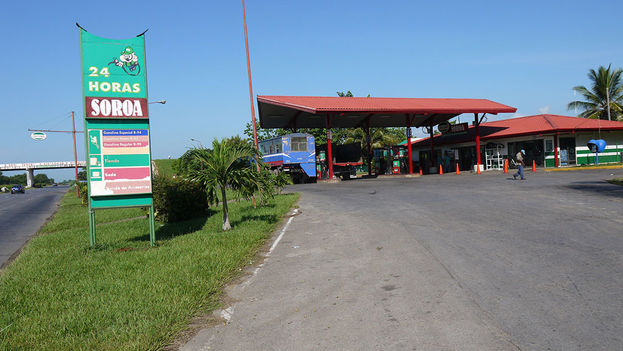
![]() EFE (via 14ymedio), Havana, 1 September 2016 — The workers of more than 94% of Cuba’s state enterprises will have to pay personal income taxes and a special contribution to social security starting on October 1, Cuba’s official media reported Thursday.
EFE (via 14ymedio), Havana, 1 September 2016 — The workers of more than 94% of Cuba’s state enterprises will have to pay personal income taxes and a special contribution to social security starting on October 1, Cuba’s official media reported Thursday.
Deputy Minister of Finance and Prices, Meisi Bolaños, said that both taxes will be collected in state enterprises if they pay workers bonuses on top of the basic salary for performance and for the distribution of benefits, according to the state-run Cuban News Agency.
The tax on personal income will be fixed when the monthly salary exceeds 2,500 Cuban pesos (about $100 US), with a tax of 3% on income up to 5,000 Cuban pesos, and 5% on income above this figure.
The companies themselves are responsible to withhold or deduct taxes from workers, the report said.
The official also said the tax rates will be set according to business results generated at the end of September, according to the provisions of the 2016 Law on the State Budget.
Meanwhile, the Director of Income in the Ministry of Finance and Prices, Vladimir Regueiro, said the workers would pay the charges if they receive additional compensation payments for improvements in performance or efficiencies or the distribution of earnings as an incentive for collective efficiency.
He also clarified that the special contribution to social security will be from those who receive remuneration above 500 Cuban pesos (about $20 US) in monthly income, and the tax will be 5% of the total.
At the end of the first trimester of this year, 1,306 Cuban state enterprises paid monthly wages of more than 500 Cuban pesos, including 403 that paid more than 1,000 Cuban pesos, and 25 with an average salary of 2,500 Cuban pesos, according to data from the Ministry of Labor and Social Security.
The Finance and Prices management noted that these taxes are targeted to “support the economic development of the country and public expenditure.”
The new Tax System Law, which entered into force in Cuba in 2013, provides for the gradual and flexible application of taxes.
Currently workers in private businesses, agricultural and non-agricultural cooperatives and artists, creators, support staff in the cultural sector, designers, employees working in foreign enterprises, owners of land transport and boats and businesses and corporations are required to pay taxes on earnings.
Translator’s note: While in the past Cuba’s state workers have not had taxes deducted directly from their pay, the government effectively “deducts taxes” before it pays the workers, who historically have received a pittance for their labor.
